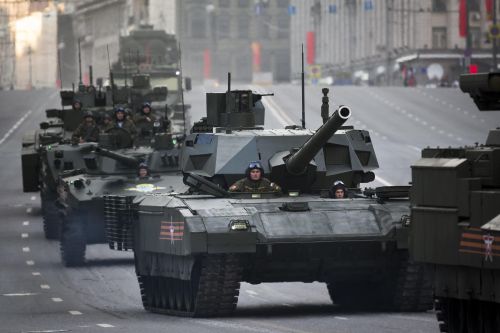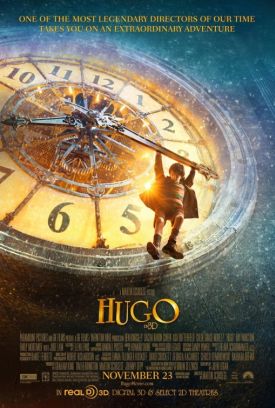Stumbling through the fog
From The New CriterionThe fog of unreality that has crept on little cat feet to blanket Joe Biden’s Washington for over a year now has yet to move on, I have to report, in spite of the shock of the Russian invasion of Ukraine at the end of February. Here, it might have seemed, was a real-world disaster of potentially world-wide dimensions to dwarf all the hypothetical ones, such as climate change or a Trumpian “insurrection,” with which we have been so much pre-occupied lately — at least we have if we are among the remaining followers of “the news.” Yet both the news media and the political leadership of the country remain largely fog-bound, huddled together with their treasured disaster scenarios, to which the real world is only permitted to make an occasional, pre-screened contribution.
Thus to our media and political moralists it was not just Ukraine that Vladimir Putin’s evil empire was attacking, it was “democracy” itself. It was truth, justice and the American way. It was, in short, us — us and everyone else in the world who, like us, loves freedom and hates tyranny. That’s why the heroic Ukrainians were said by David Brooks of The New York Times to have inspired the rest of the free nations of the world to emulate them in fighting their own battles for democracy. “They’ve shown us that the love of a particular place, their own land and people, warts and all, can be part and parcel of a love for universal ideals, like democracy, liberalism and freedom” — ideals that always sound their best when someone else is doing the fighting and dying for them.
Nationalism, in short, so lately derided as being tantamount to Naziism when it was proposed as a rallying cry for Americans, is restored to the good graces of The New York Times when predicated of Ukrainians. It seems that they are now just like us when we stood up to that other evil tyrant, Donald Trump. For, like the former president, Mr Putin “has unleashed violence and chaos” by which he has “sought to shake the very foundations of the free world, thinking he could make it bend to his menacing ways.” These are the words, sounding through the prevailing fog, of President Biden during his State of the Union message at the beginning of March. Though he never mentioned Mr Trump, that familiar bogey-man lingered in the background of his speech, as he has in that of the whole Biden presidency, which was delivered to a suddenly maskless Congress in a Capitol building ringed by National Guard troops called up for the occasion to protect our national shrine of democracy, presumably against Mr Trump’s imaginary insurrection.
Mr Biden could not, of course, have ignored the goings on in Eastern Europe and their knock-on effects but, he had somehow to slot them into one of the pre-existing narratives on which his presidency has been founded. In addition to viewing the Russo-Ukrainian war against the unmentioned (on this occasion) backdrop of the Trump “insurrection,” he apparently also saw it less as a geopolitical problem for the U.S. and NATO than as an opportunity for himself to look tough and in command of events for a change. The media, in turn, took it for granted that that was what he was doing — whether or not he was successful in doing it was another matter — just as they took it for granted that he was really talking the whole time much more about the state of his presidency than about the state of the union. To the media the two are one and the same.
It must have felt good for him to promise Vladimir Putin that he would be “held accountable” and would “pay a price” in economic sanctions for his military adventurism — sanctions that did not include, initially at least, refusing to buy Russian oil — and it got him a bipartisan applause line. But when he said that the evil dictator “has no idea what’s coming,” one couldn’t help but think that this was equally true of himself. Having already explicitly disavowed sending American troops to fight alongside Ukrainians for their freedom, he had no other “price” to propose than the announced sanctions, which Mr Putin must already have priced in to his military adventure when he undertook it.
“When the history of this era is written,” the President declaimed, “Putin’s war on Ukraine will have left Russia weaker and the rest of the world stronger.” His words reminded me of those of his predecessor, President Barack Obama, when he made his bizarre call for new elections in Crimea in response to Mr Putin’s previous expropriation of Ukrainian territory, or his wishful thinking about the abortive Green Revolution in Iran a few years earlier (see “Negative side effects” in The New Criterion of April, 2014). On that occasion Mr Obama had offered, in lieu of helping the liberal and anti-theocratic demonstrators in Teheran, the usual consolation that, though defeated, they had been “on the right side of history.” Though his words were no doubt of unspeakable comfort to the demonstrators in their prison cells, we’re still waiting for history to avenge them. So, as we can all agree, are the Ukrainian patriots on the right side of history, though the fact is unlikely to do them any more good than it did the Iranian liberalizers of 2009. The consolation of “history,” like the inspiration of the Ukrainians’ resistance, is much more for our sake, and for that of our virtue-signaling foreign policy that can afford them so little in the way of material assistance, than it is for theirs.
Charles Moore of the (London) Daily Telegraph wrote of the more recent Russian invasion that “the only good thing about the terrible events of this week is that they bring us back to reality. Like September 11 2001, or China’s behaviour over Covid, Putin’s invasion of Ukraine dispels cherished illusions.” This could be true and yet there still remain plenty of cherished illusions to go around. He himself made the comparison between his own country’s prime minister’s ringing words of support for Ukraine and the now-famous editorial from the tiny Irish newspaper, The Skibbereen Eagle in 1898: “We will still keep our eye on the Emperor of Russia and on all such despotic enemies … of human progression and man’s natural rights.”
Our President, too, sounded a bit like The Skibbereen Eagle — or perhaps like King Lear, threatening to “do such things/What they are yet I know not, but they shall be/The terrors of the earth.” But poor old Lear, who “hath ever but slenderly known himself,” seems more in touch with reality than Mr Biden, who went on, in addressing domestic matters, to propose more government spending as his remedy for the inflation which has been caused by too much government spending already, and to tout himself as a heroic cutter of the budget deficit — a deficit which he himself had created with such spending — because Congress has so far declined to appropriate the extra trillions he is still requesting for his Build Back Better boondoggle, now renamed Building a Better America.
One would like to think that when this President says such things — or when he says, as he did say in the State of the Union address, that “We need to secure the border and fix the immigration system,” or Trump-like, to “rebuild American manufacturing,” or that “our kids need to be in school” — that the House would dissolve in bipartisan laughter at the clear contradiction of everything his administration has stood for up until now. But laughter depends on a shared sense of reality, which is something that those on the cutting edges of our partisan divide no longer have. Mr Biden, in particular, has long inhabited a world of his own, a world in which the evacuation from Afghanistan was an “extraordinary success” and a multi-trillion-dollar spending bill costs “zero.” Into this world of imagination our media, with their usual contempt for the intelligence of the non-ideologues among their fellow citizens, willingly follow him — because it suits their narrative to do so.
Or else they pretend not to notice its existence, as they did with the final Biden exhortation to Congress in the State of the Union: “Go get ‘im!” Nobody knows whom the assembled lawmakers and guests were intended to “go get.” Perhaps he saw himself as leading an imaginary army against Russia. But we all pay a price when so important a segment of our common culture as that which is now under the control of leftist ideologues is indifferent to realities that don’t fit in with their political agenda. We all stumble about in the fog created by the media and the political culture they have learned to manipulate, and we find ourselves wondering if we have lost our own tether to reality — at least we do unless, like Joe, we really have lost it.
Here’s a headline from Reason that appeared in the magazine’s on-line version of February 28: “No, We Shouldn’t Attack Russia and Start World War III Over Ukraine.” Then, as if in explication of such an outlandish point of view, the sub-head read: “While it’s tempting to defend the besieged nation from Putin’s aggression, nuclear annihilation would be bad.” One hastens to agree that that nuclear annihilation would indeed be bad before remembering that one already knew that. One thinks. There, at any rate, speaks the voice of Reason! A little further down on the same page, we read that “FEMA Encourages Survivors of a Nuclear Holocaust To Mask, Socially Distance” — though this is presumably not the only way in which nuclear annihilation would be bad. You couldn’t, as they say, make it up.
Say what you like about the naive young war protesters of my generation, I’m pretty sure they were well aware of the rhetorical device known as litotes, or understatement, in their long-ago poster and bumper-sticker apothegm that “War is Not Healthy For Children And Other Living Things.” I’m not so sure that those my friend Mark Bauerlein calls, in his just-released second book on the subject, “the Dumbest Generation” do understand it. For one thing, understatement is not the way the media roll anymore — and hasn’t been since long before they were born. Even overstatement, or hyperbole, now seems tame when nothing short of apocalypse will do.
Just look at the most recent of our flirtations with world-ending catastrophes. Most recently we’ve had the Covid apocalypse, still apparently able to compete in seriousness with nuclear holocaust, in which a mass die-off of humanity was supposed to be right around the corner if we didn’t shut down our lives, retreat inside and wear masks during any venturing out of doors — the same masks that Congress shed just in time for the State of the Union’s self-contradictory message that “we never will just accept living with Covid-19″ but will instead “continue to combat the virus as we do other diseases.” Diseases, that is, with which we have to live.
But that was only the latest of the hypothetical horrors with which we have been terrified since, with the end of the Cold War, climate change first took the place of nuclear annihilation as the preferred cause of the prospective extinction of the human species. Since then the young, in particular, have been so beaten down with the sense that the world is about to end — if not from climate change then from the rise of China, or systemic and ineradicable racism or toxic masculinity or trans-phobic feminists or the Trump “threat to democracy” that the apocalyptic currency has been thoroughly debased. So many unreal but world-destroying disasters have been used to frighten them that and they can hardly be expected to recognize a real one, if and when it comes along.
I take it that the Reason article, like the FEMA advice about social distancing post-holocaust, were inspired by the news that Vladimir Putin had put Russia’s nuclear forces on alert — an obvious bit of sabre-rattling that, all the same, cannot be dismissed as a threat either to ourselves or to the world. We’d sort of forgotten about that apocalypse — which had a good run back in the 1980s as part of the media’s campaign against President Reagan’s Strategic Defense Initiative, or “Star Wars” as they derisively called it. Now here it suddenly was again as a warning against the armchair warriors eager to engage with the Russians on behalf of plucky little Ukraine. Perhaps we do need to be gently reminded that nuclear annihilation would be bad.
Certainly John Kerry does. Our climate czar has a professional interest in crying up the impending environmental catastrophe, even though (or especially as) it’s been impending for over 30 years without any obviously catastrophic consequences. He would be out of a job without it. But you’d think that even he would have the modicum of self-awareness necessary to see the absurdity of his appeal to Mr Putin not to let his Ukrainian adventure get in the way of “the bigger need to combat climate change.” It’s just one more redundant indication of the extent to which, among our ruling classes, nothing ever happens in the world except as it impinges upon some ideological hobby-horse. Mr Kerry may be unaware that it’s only because the Putin regime has disregarded his climate change prescription that we have Russian oil to buy, in spite of Mr Biden’s sanctions, to replace that which, in deference to “the bigger need to combat climate change,” we have declined to pump ourselves. That’s no concern of his, however. Both nuclear war and climate change are said to threaten the extinction of humankind, but who is to say which is the more immediate, or the more exigent threat? You’d have to ask an expert.
And that’s just the problem, as I meant to suggest in these pages two months ago (see “Real Science” in The New Criterion of February, 2022). For the experts all have their own axes to grind, and nobody gets paid or promoted to be an expert in reality — that now mostly unknown context in which all our various and sundry disaster narratives are embedded, awaiting the call of events which, as we may still hope, might never happen.
You might suppose that it would be the job of a national leader to serve as the voice of reality in rebuke of these self-interested and self-dealing experts, but we expect our leaders to defer to the experts instead and regard it as scandalous if they don’t. This is what ultimately gets these leaders tangled up, like Mr Biden, in perpetual and ludicrous (if we but knew it) absurdity and self-contradiction. Like the consolations of “history,” the testimony of our experts is likely to be of but cold comfort to the Ukrainians, whose own sad narrative mustn’t be allowed to terminate in a world-wide sprouting of mushroom clouds. But both can still make us feel better about our many failures to make reality bend to our own menacing ways.
Discover more from James Bowman
Subscribe to get the latest posts to your email.







